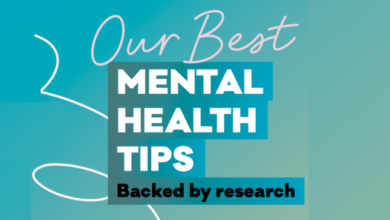The Benefits of Mindfulness Meditation for Overall Well-being

In a fast-paced world filled with constant distractions and responsibilities, the practice of mindfulness meditation offers a sanctuary for inner calm and enhanced well-being. Mindfulness meditation, rooted in ancient traditions, has gained popularity in modern times for its transformative effects on mental, emotional, and physical health. This article explores the profound benefits of mindfulness meditation and how it contributes to overall well-being.
Mindfulness Meditation Defined
At its core, mindfulness meditation involves cultivating present-moment awareness without judgment. It encourages individuals to observe their thoughts, feelings, and sensations with curiosity and acceptance. By learning to be fully present, practitioners develop a deeper understanding of their inner landscape and the world around them.
Reducing Stress and Anxiety
One of the most notable benefits of mindfulness meditation is its ability to alleviate stress and anxiety. The practice encourages individuals to observe their thoughts without getting entangled in them. This detachment from racing thoughts reduces the body’s stress response, leading to decreased cortisol levels and a calmer state of mind.
Improving Emotional Regulation
Mindfulness meditation fosters emotional intelligence by allowing individuals to become more attuned to their emotions. With regular practice, practitioners learn to respond to emotions rather than react impulsively. This emotional regulation enhances interpersonal relationships and promotes a sense of emotional balance.
Enhancing Focus and Concentration
In a world of constant distractions, mindfulness meditation trains the mind to focus on the present moment. This enhanced concentration transfers to daily tasks, improving productivity and efficiency. Studies have shown that mindfulness meditation can increase attention span and cognitive performance.
Managing Pain and Physical Well-being
Mindfulness meditation has been shown to effectively manage pain and improve physical well-being. By redirecting focus from discomfort, individuals develop a heightened awareness of bodily sensations without judgment. This approach promotes relaxation, reduces pain perception, and even contributes to a better quality of sleep.
Boosting Self-Compassion
Mindfulness meditation encourages self-compassion by teaching individuals to treat themselves with kindness and understanding. The practice helps individuals observe self-criticism without judgment and replace it with self-acceptance. This shift in perspective nurtures self-esteem and self-worth.
Cultivating Resilience
Regular mindfulness meditation builds resilience by enabling individuals to face challenges with equanimity. Practitioners develop a non-reactive stance toward difficulties, allowing them to navigate adversity with greater clarity and emotional steadiness. This resilience extends to various aspects of life, enhancing overall coping mechanisms.
Lowering Blood Pressure
Studies suggest that mindfulness meditation can have a positive impact on blood pressure. By promoting relaxation and reducing stress, the practice contributes to lower blood pressure levels. This cardiovascular benefit is particularly relevant in today’s high-stress environment.
Enhancing Self-Awareness
Mindfulness meditation deepens self-awareness by encouraging individuals to observe their thoughts and behaviors without judgment. This introspective approach fosters a better understanding of personal patterns, habits, and triggers. As self-awareness increases, individuals can make conscious choices aligned with their values and goals.
Promoting Gratitude and Positivity
Mindfulness meditation fosters an attitude of gratitude and positivity. By directing attention to the present moment, individuals become attuned to the beauty and richness of life’s experiences. This shift in perspective encourages appreciation and a positive outlook.
Incorporating Mindfulness Meditation
Incorporating mindfulness meditation into daily life doesn’t require a significant time commitment. Starting with just a few minutes a day can yield noticeable benefits. Find a quiet space, sit comfortably, and focus on your breath or a chosen point of focus. As you practice, your ability to remain present will improve.
Conclusion
Mindfulness meditation is a transformative practice that nurtures holistic well-being—mental, emotional, and physical. Its benefits extend beyond relaxation, encompassing stress reduction, emotional regulation, enhanced focus, pain management, self-compassion, resilience, and cardiovascular health. By making mindfulness meditation a part of your routine, you embark on a journey of self-discovery, inner peace, and empowerment. As you cultivate present-moment awareness, you unlock the potential to lead a more balanced, fulfilled, and enriched life.






